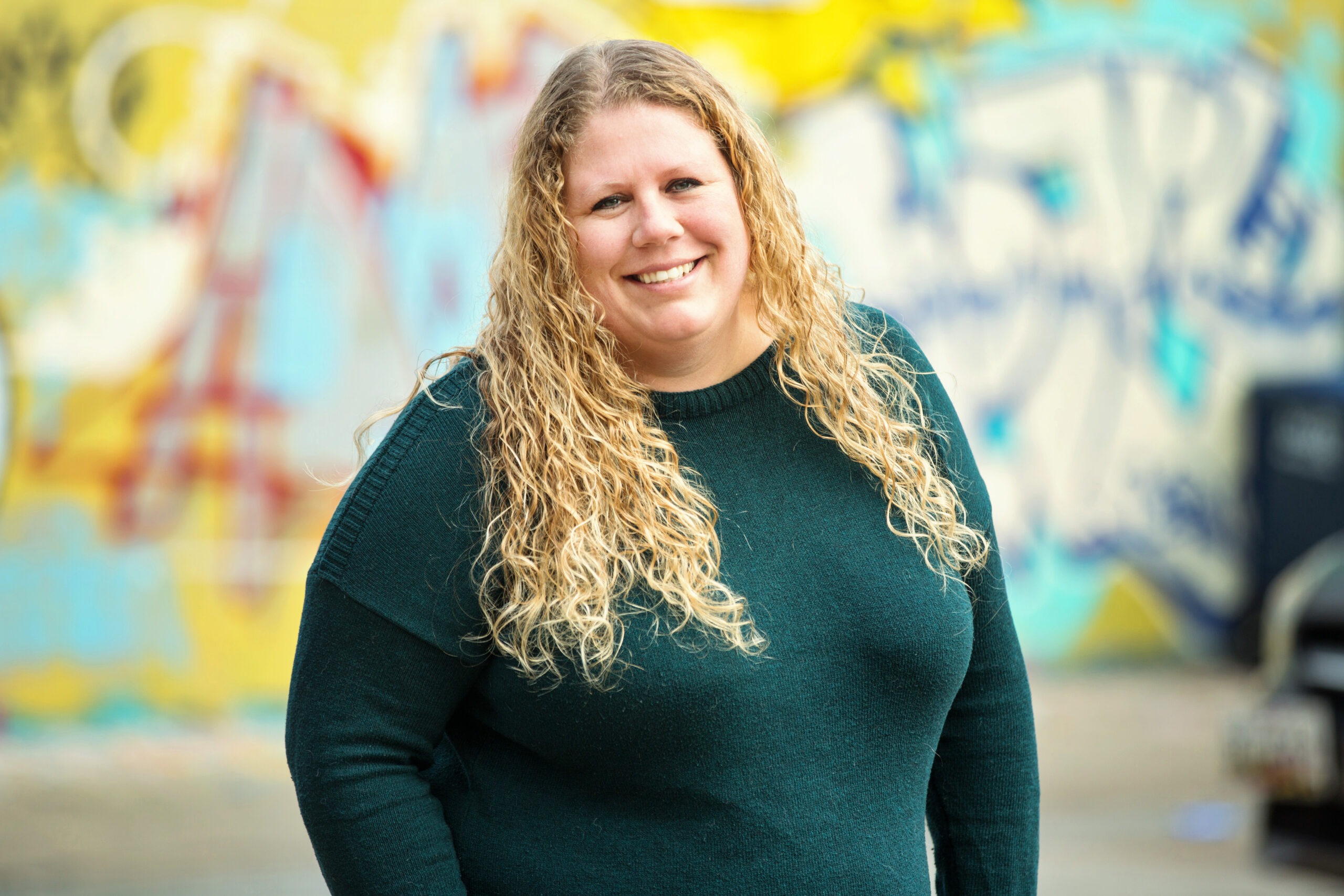Army veteran Moochie Barnes was in a precarious situation.
The 42-year-old Washington, D.C. resident had just moved into an apartment and started a new job but was dealing with health challenges — including imminent surgery. He needed to have a metal plate inserted into his ankle, but the recovery required bed rest, and he wasn’t at his new job long enough to have accumulated any leave.
“I wasn’t able to pay the bills or maintain my rental because I was so sick and in and out of work,” Barnes explained. He had faced homelessness before, and he was suddenly in an unstable situation again.
“So I reached out to the VA and they gave me some resources and assistance that I could receive until my situation got better. And that’s how I got connected to the flex fund.”
Barnes applied for flexible funding — financial assistance designated to help prevent veterans from experiencing or returning to homelessness, offered by D.C.-based emergency assistance program provider Housing Counseling Services (HCS).
“Even though I was up for eviction, I was able to still stay in the apartment until after the process was completed,” he said. “Once the flex fund paid the back rent, it had me in a stability mode where I was able to get control.”
Now, Barnes is healthy, back to work, and still in that same apartment today. With his continued stability, he’s also earning his bachelor’s degree in cybersecurity.

“The experience was very trying. But HCS helped me get through the process,” Barnes noted. “I’m in a better mind space, a better space, a better place.”
Funding the gaps
Barnes’ experience highlights the difference flexible funding can make for veterans in crisis. But how does flexible funding work, and what makes it so effective?
“We found that there was clearly a gap for veterans at risk of homelessness for resources to keep them from homelessness.”
Marian Siegel, CEO of Housing Counseling Service
Flexible funding, or “flex funds,” is part of Built for Zero’s strategy to help communities make progress toward key milestones like functional zero and quality data. While federal and private funding is critical to help people secure and afford housing, these programs often have restrictions and don’t cover costs like application fees, moving belongings, or purchasing furniture.
Flex funds fill those gaps. These small, unrestricted investments can help accelerate housing placements or prevent people from losing housing. This ability to address specific needs made flex funding particularly effective in Washington, D.C.’s effort to solve veteran homelessness.
To tackle this challenge, a team led by the District of Columbia Interagency Council on Homelessness (ICH) and HCS applied for Built for Zero’s flex funding, focusing specifically on prevention.
“They raised their hand and said, ‘We have to use this to address our inflow issue, because if we don’t, we’re never going to get to functional zero,’” said Megan Klenke-Isgriggs, Strategy Lead for Community Investments at Community Solutions.
HCS was chosen to administer the funding due to their expertise in providing emergency assistance and helping to prevent veteran homelessness.
“We felt that the flex funds would be a good tool that our agency could use, especially since we administer an SSVF [Supportive Services for Veteran Families} program and have been effective in serving veterans, we thought this would be a useful resource to augment the services that we provide,” explained Oscar Mitchell, Director of Programs and Policies at HCS.

With its ability to provide immediate financial relief to veterans facing an urgent crisis, the flex fund program does not necessarily require the more intensive case management that is part of other housing programs. And by reducing the need for complex paperwork and strict eligibility criteria, the flex fund allows veterans to quickly access emergency financial support.
“We found that there was clearly a gap for veterans at risk of homelessness for resources to keep them from homelessness … this program was able to target an immediate crisis and resolve it so that stability can be maintained or reestablished,” noted Marian Siegel, CEO of HCS.
Spreading the word
After launching the automated referral process and online application for veterans and case managers in October 2023, the team knew that awareness was the next step. They set out to inform the community about the available funding.
“We started with extensive outreach largely geared toward homeless service providers that were already connecting with veterans who were either homeless or at risk — so transitional housing programs, day centers, and emergency shelters,” said Mitchell.
HCS then widened their scope to promote the program to veterans in need since they could apply for funds directly. They shared information through direct outreach, their website, and rental assistance flyers distributed in housing court and across the city.
Applications were reviewed regularly by HCS staff to determine eligibility and ensure the need wasn’t covered by other programs or resources. However, HCS soon realized some adjustments were in order.
“At the beginning, we made it a pretty much no-barrier program,” said Siegel. “We did have to tighten up criteria … the demand was much higher than we expected, and the amounts needed were much greater.”
As pandemic-era rental assistance programs have ended, more tenants continue to grapple with increased rents and back payments. As a result, a committee was formed from representatives from the Continuum of Care (CoC), SSVF, and other agencies to review funding requests exceeding $5,000, ensuring that the funds had a high likelihood of leading to housing or stabilization for recipients.
“You’re just trying to find that right balance of being great stewards of the money but not creating barriers to entry,” said Jill Carmichael, Built for Zero Project Lead at ICH.

“You’re just trying to find that right balance of being great stewards of the money but not creating barriers to entry.”
— Jill Carmichael, Built for Zero Project Lead at D.C. Interagency Council on Homelessness
Small investments, big impact
When it comes to preventing people from becoming or returning to homelessness, speed and flexibility are crucial. A team of HCS staff members regularly attends every eviction hearing in Washington, D.C. When they encounter a veteran at imminent risk of eviction, they refer them to HCS for assistance, which could include case management, tenant services, or, more recently, applying for flex funds.
Since its inception, the program has helped 47 veterans who were already in the court eviction process when they received the funds.
“So you’re literally stopping actual evictions from happening,” Carmichael said.

With such high need throughout the community, the remaining flex funds were expended even more quickly than anticipated. Since its inception last October, the fund has assisted 209 veterans, 164 of whom were at imminent risk of homelessness.
Overall, 86% of the funds have been used to prevent veteran homelessness — including helping Moochie Barnes remain in his home. His story is just one example of how immediate, flexible assistance can be the difference between housing stability and homelessness.
“If you can’t stabilize someone at risk, they’ll enter a system that costs much more in the long run. This is a quicker, more effective, more efficient, and cheaper way,” Carmichael said.
As the flex fund period has drawn to a close, the D.C. team is working to secure more funding to continue the momentum. “We’re nearing functional zero,” said Carmichael. “And we need a funding partner to get us to the finish line. This is one of the tools needed to get there.”
“We want to serve our veterans who have served our country and make sure they are stabilized in housing.”
Built for Zero community members interested in the CS Flex Fund and how to apply can learn more here.
Are you interested in supporting the availability of flexible funding in Washington, D.C., or other communities?
Contact the D.C. Interagency Council on Homelessness at ich.info@dc.gov for more information on how to support the fund in Washington, D.C.
Or to be connected to a flex fund in your community, contact Megan Klenke-Isgriggs, Strategy Lead for Community Investments at Community Solutions, at mklenke@community.solutions.




